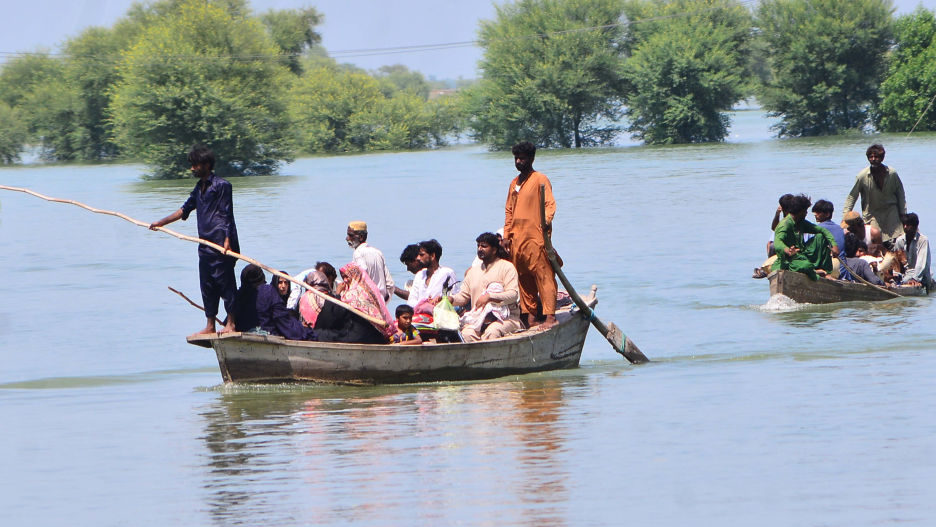Pakistan has said that it will be transparent in spending the $10.57 billion it received in international commitments this month for restoration in areas of the country affected by catastrophic floods in the second half of 2022.
In Pakistan, unusually severe rainfall began in June 2022 and persisted until October. The ensuing floods, which were exacerbated by climate change, killed over 1,700 people and affected 33 million others, damaging or destroying 2 million homes as well as thousands of schools and hospitals. It is regarded as the biggest disaster in the country’s history, with a $16 billion recovery budget.
On January 9, Prime Minister Shehbaz Sharif told reporters beside United Nations Secretary-General Antonio Guterres at the International Conference on Climate Resilient Pakistan in Geneva that “every penny will be spent in the most transparent fashion.”
“I have put in place third-party validation mechanisms so that every penny is accounted for and is invested in the interest of the needy and helpless people who have been badly affected by these ferocious floods,” Sharif said as he thanked the international community for its donations.
Read also: Survey: Americans delaying life decisions due to concerns about climate change
The floods are estimated to have increased the national poverty rate, pushing an additional 9.1 million people below the poverty line. Existing health and food insecurity were also exacerbated by the disaster, again disproportionately affecting the most vulnerable.
The government of Pakistan declared a national emergency on August 26 and appealed for worldwide aid. Guterres visited Pakistan on September 9 and called for “massive and urgent financial support” for the stricken nation.
The high-level January 9 conference was organized by the UN and Pakistan to discuss the country’s financial needs and a strategy for a resilient recovery. Officials from 40 nations gathered in Geneva, alongside private donors and international financial organizations, in response to Pakistan’s urgent quest for assistance.
“The conference brought together the international community to reaffirm solidarity with Pakistan, to review the recovery needs of the affected population, and to identify the support required to reconstruct and rehabilitate the damaged infrastructure in a resilient manner,” Pakistan’s Ministry of Foreign Affairs said in a statement to the media.
“The conference focused on discussing and endorsing a comprehensive recovery strategy named 4-RF: Resilient Recovery, Rehabilitation, and Reconstruction Framework, building on the Post-Disaster Needs Assessment undertaken,” the ministry said.
According to the European Union delegation in Geneva, the 4-RF “defines timeframe, priorities, institutional arrangements, policy articulation, financial management, and implementation modalities for recovery and reconstruction through a consultative process with federal and provincial governments.”
Pledges at the conference included $4.2 billion over the next three years from the Islamic Development Bank and a further $2 billion from the World Bank. The Asian Infrastructure Investment Bank, European Union, Saudi Arabia, China, the United States, France, Germany, Japan, and other nations also announced financial support.
Sharif’s pledges for full transparency stem from the large-scale corruption and bribery among officials across the country. Pakistan was ranked 140 out of 180 countries on Transparency International’s 2021 Corruption Perceptions Index.
“We have one of the worst governances; here the elite rules,” political economist and former federal finance minister Miftah Ismail told The Media Line. “We should worry about the future of Pakistan.”
This story was adapted from The media line.
